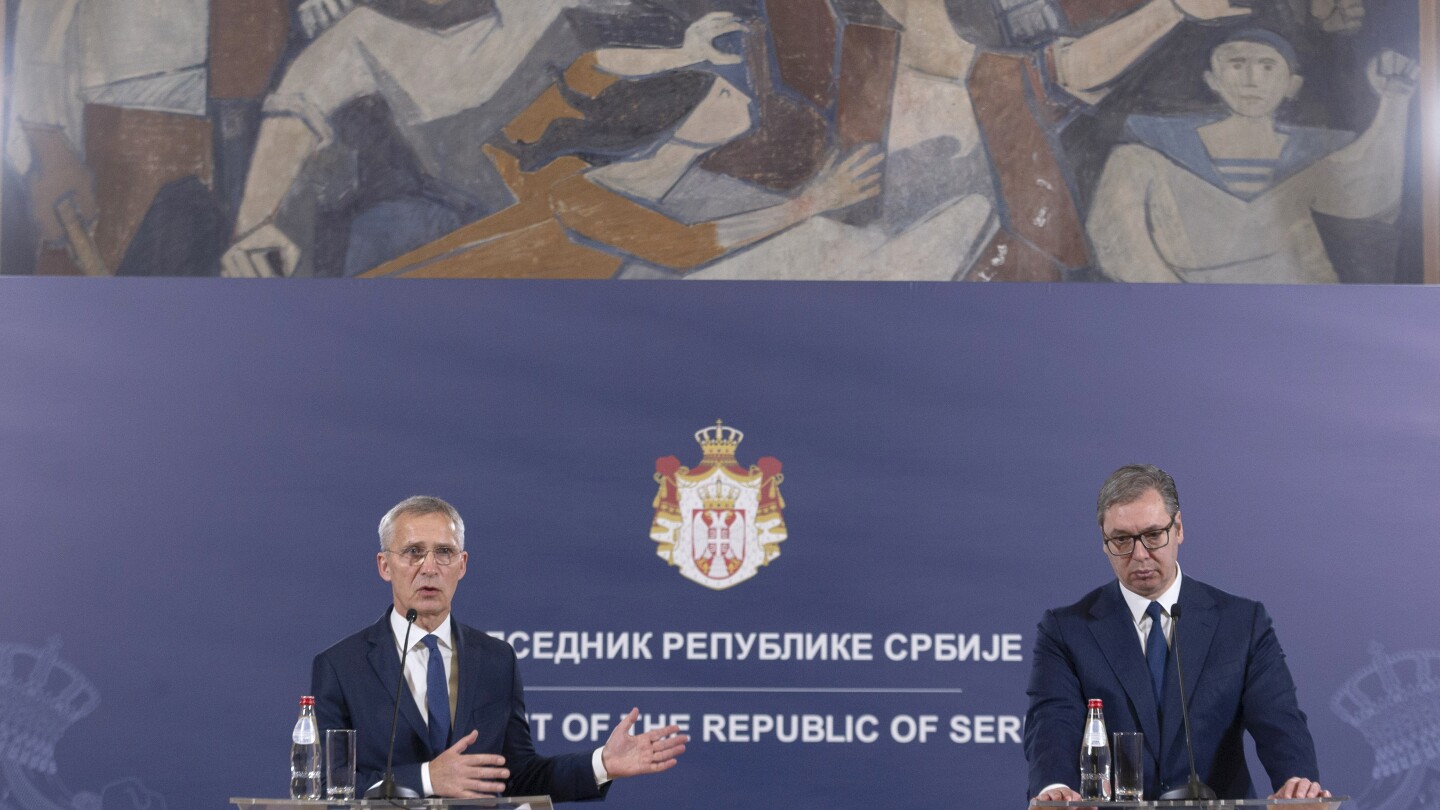BELGRADE, Serbia (AP) — NATO Secretary General Jens Stoltenberg said Tuesday that the recent violent outbreaks in Kosovo were unacceptable and perpetrators must be brought to justice.
“I count on all sides to reduce tensions and to refrain from escalatory actions,” he said during a visit to Serbia’s capital Belgrade, after his stops in Bosnia and Kosovo, on the second day of his trip in Western Balkans,
Stoltenberg’s trip reflects Western concerns over the stability of the volatile Balkan region that went through a series of wars in the 1990s.
Serbia and Kosovo witnessed a spike in tension following two violent incidents in May and September as the war raged in Ukraine. Western allies fear Russia could try to spur Balkan trouble to avert attention from its aggression on Ukraine.
In May, Serb demonstrators in northern Kosovo clashed with NATO peacekeeping troops. In September, a Kosovo policeman and three Serb gunmen were killed in a shootout after about 30 masked men opened fire on a police patrol near the Kosovo village of Banjska.
The two incidents have prompted NATO to beef up its peacekeeping presence in Kosovo. Stoltenberg said on Monday that NATO was considering deploying additional peacekeeping troops.
The NATO head said in Belgrade that some of the 93 troops wounded in clashes with Serb demonstrators had “life-changing injuries.”
“This is unacceptable, the facts must be established. The perpetrators must face justice,” said Stoltenberg. “I welcome that Serbia is prepared to cooperate in these efforts.”
Stoltenberg also urged Serbia and Kosovo to engage “constructively” in a European Union-mediated dialogue that is aimed at normalizing relations between the former foes. Serbia does not recognize Kosovo’s 2008 declaration of independence.
Both Serbia and Kosovo have been previously warned by EU diplomats that refusal to compromise jeopardized their chances of joining the EU.
Serbia’s President Aleksandar Vucic said at a joint press conference with Stoltenberg that tensions in Kosovo were the result of increased pressure by the government there on the ethnic Serb minority.
Only Serbs “are under threat in Kosovo,” Vucic insisted.
Serbia has pledged to prosecute the alleged ringleader of the armed group behind the September shootout in Kosovo. Belgrade has denied allegations it orchestrated the incident.
Stoltenberg also called for increased cooperation with Serbia and the resumption of joint military training exercises, saying that NATO respected Serbia’s decision to remain militarily neutral.
Belgrade has maintained friendly relations with Russia and refused to join Western sanctions against Moscow, which has backed its bid to retain claim on Kosovo.

